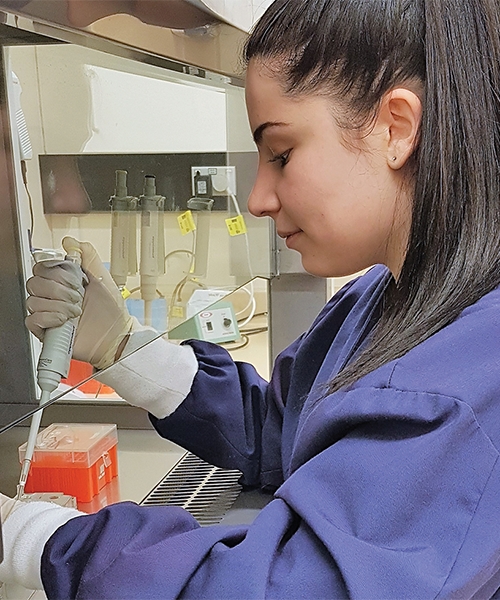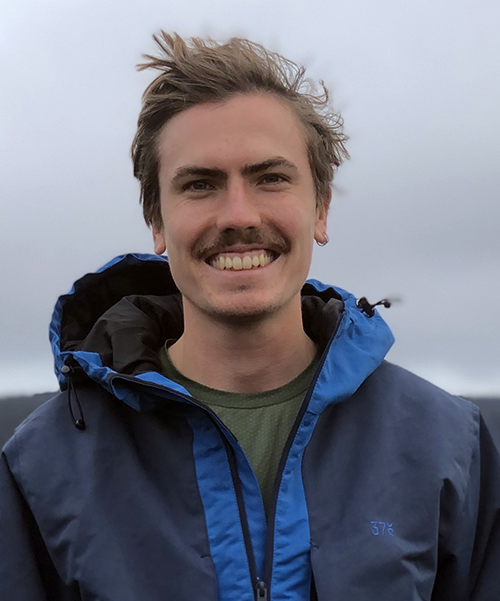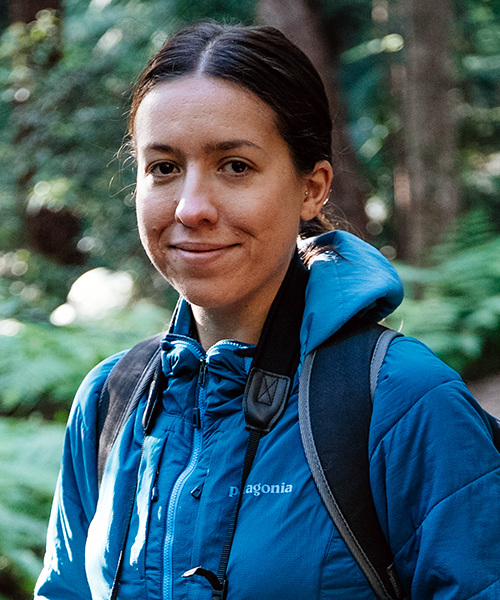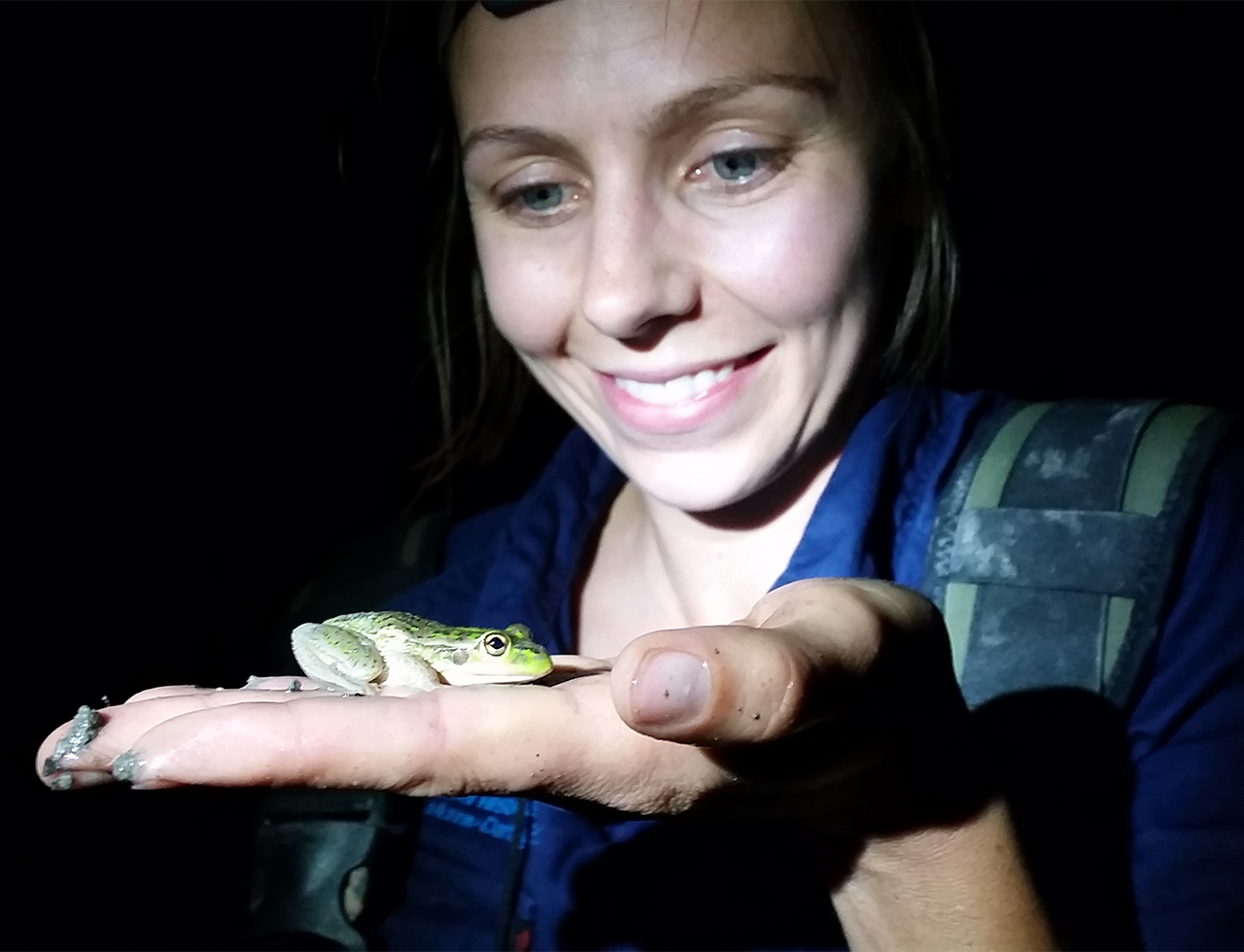
What was your hub student experience like?
Wednesday, 08 December 2021Almost 90 students were part of the hub, and they made a major contribution to research, collaborations with on-ground partners, and sharing research findings with the groups that can use them. We asked a few of our students about what it was like to be part of the hub. Here is what they had to say.
Emily Hoffmann,
PhD candidate, University of Western Australia
Top image: Emily Hoffmann conducting frog surveys. Image: Callie Nickolai
I have spent the past four years crawling and climbing around swamps to study the Critically Endangered white-bellied frog, which is restricted to a small area in the south-west of Western Australia.
Being a part of the Threatened Species Recovery Hub community has been an asset to my PhD experience. To have multi-year funding from the outset was a huge advantage. It also connected me to numerous researchers and projects as well as providing important networking and workshop opportunities.
The hub’s communications team also offered a unique PhD experience through their support and encouragement to produce some very shiny and professional-looking factsheets and articles for my project. These have been perfect for sharing with project partners and stakeholders, and to distribute my research more widely (so it’s not just my mum that reads about my work).
My project was highly collaborative with the Western Australian Government (Department of Biodiversity, Conservation and Attractions, Parks and Wildlife Service and Perth Zoo) and the Geocrinia Recovery Team. This was probably the most essential part of my project, other than the frogs. The long-term knowledge and historical data they provided was pivotal. It also meant that the project could have a really applied angle – excitingly, conservation managers are already using our findings to identify new potential translocation sites that are more likely to support viable populations.
I have recently submitted my thesis (last week as I write!) and so am now looking forward to a new challenge.
|
|
Jessica Agius, Being part of the hub supported me to fulfil the conservation aims of my PhD research on a bacterial infection threatening Critically Endangered Christmas Island reptiles and to develop the skills needed to help conserve Australia’s threatened species. |
The hub also gave me support, tools and opportunities to improve my research engagement and outreach, and enabled me to showcase my research to a wide range of relevant and interested stakeholders.
During the project I engaged extensively with key stakeholders. Parks Australia provided me with foundational knowledge of Christmas Island, its flora and fauna, and conservation importance, and thanks to their support and collaboration all field work seasons were a success and incredibly enjoyable. The Australian Registry of Wildlife Health at Taronga Conservation Society Australia were also of vital importance and through their expertise and ongoing collaboration I was able to develop essential reptile, laboratory and field work skills.
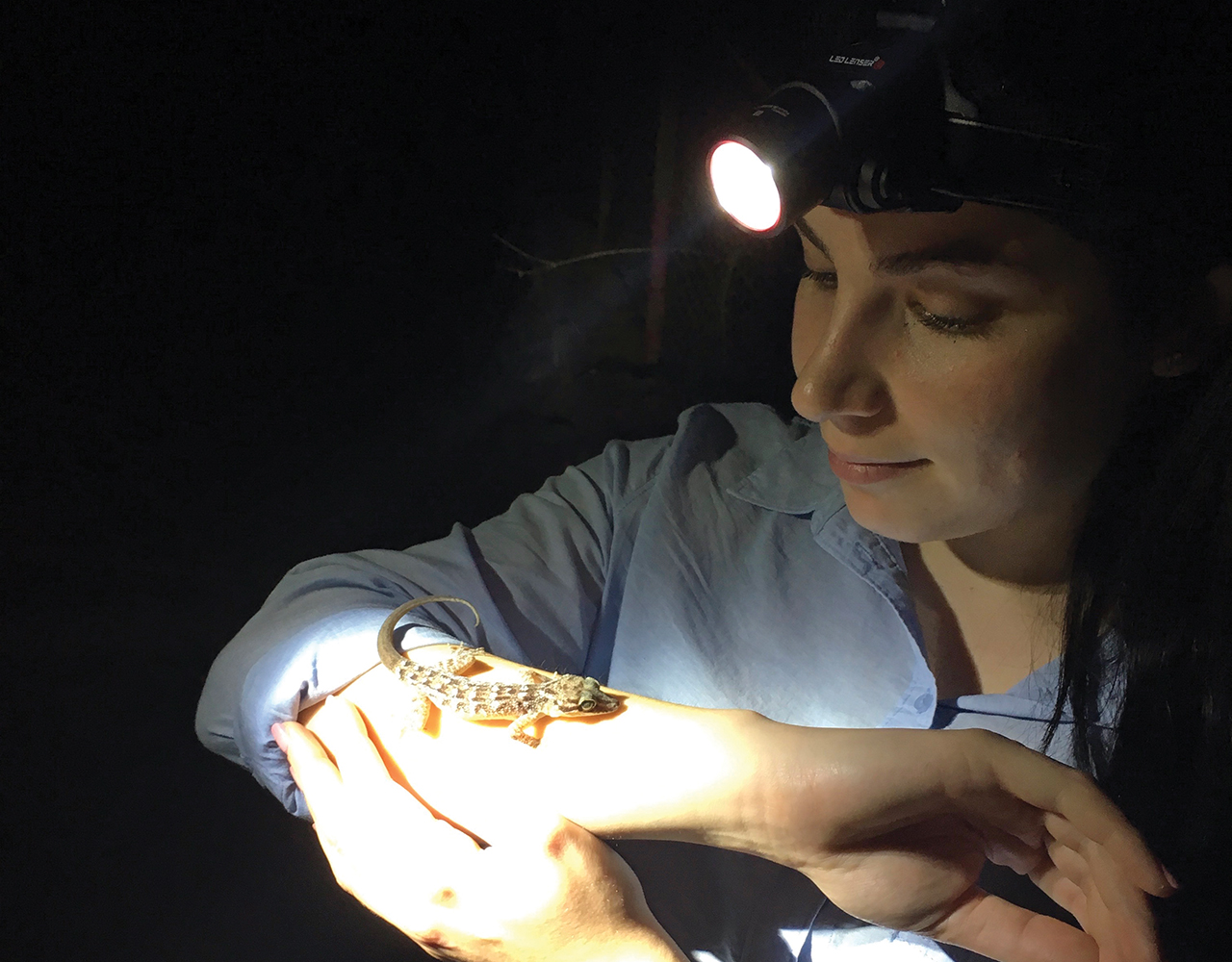 Jessica Agius in the field spotlighting geckos on Christmas Island. Image: David Phalen
Jessica Agius in the field spotlighting geckos on Christmas Island. Image: David Phalen
The hub’s 2018 postgraduate conference was a major highlight. The combination of workshops, training, presentations and fun field adventures provided a great opportunity to learn new things, develop collaborations, and build research and career opportunities. I also met researchers with similar interests who became great friends and collaborators.
I am now undertaking postdoctoral research at the Centre for Infectious Diseases and Microbiology – Public Health at Westmead Hospital, New South Wales in the SARS-CoV-2 genomics team. My primary focus is understanding SARS-CoV-2 evolution and mutations; however, I am also involved in other projects looking at zoonotic diseases with a wildlife focus.
|
|
Callum Mulvey, My honours degree research on the impacts of bushfires on freshwater fish contributed to a Threatened Species Recovery Hub research project by the Franklin ECO-lab. |
There are significant gaps in our understanding of how fires can impact freshwater fauna, and the need to fill these gaps became very apparent in the wake of the 2019–20 Black Summer. My project used experimental techniquesto understand how fire-associated environmental changes can affect fish aerobic physiology and performance.
Completing an honours degree was an incredibly rewarding experience. Not only was it an exciting opportunity to develop new practical skills and understanding while working alongside scientists who I’d always admired, but I was able to make a meaningful contribution to science at the same time. I am deeply passionate about conservation, so it was a real privilege for me to be able to take part in threatened species research.
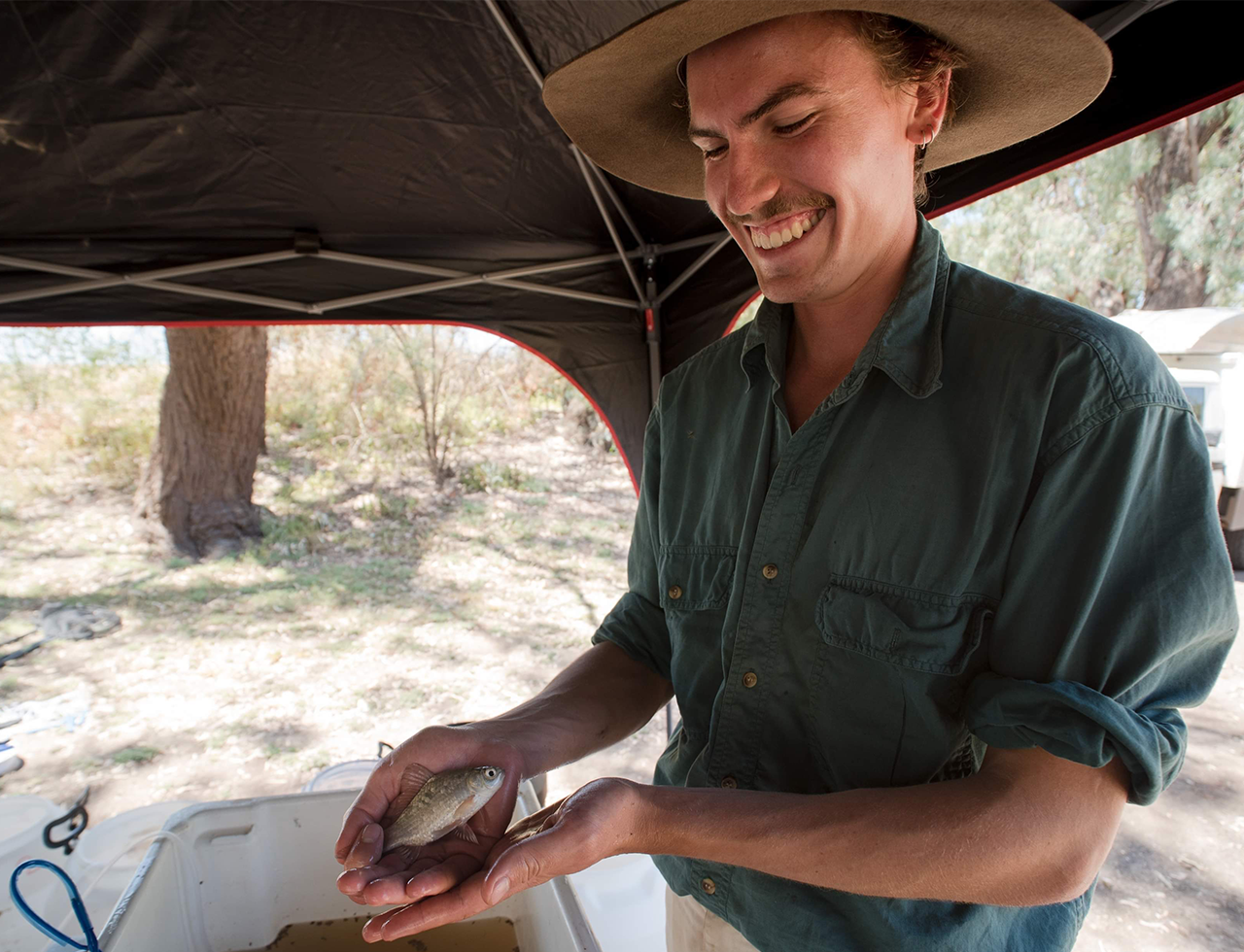 Callum Mulvey assessing the health of juvenile fish in the field. Image: Cameron Baker
Callum Mulvey assessing the health of juvenile fish in the field. Image: Cameron Baker
My work was aimed at improving post-fire conservation management actions in Australia, so one of the best aspects of working with the hub for me was the opportunity to connect with and present my final research findings to invested research end-users from around Australia. This enabled me to deliver my project’s most important take-aways directly to the people who need to know and can apply them. I’m currently progressing toward publishing my first manuscript from my honours research.
After finishing honours, I worked in the hub’s science communication team writing developing communication knowledge products such as findings factsheets. This gave me exposure to the findings of a wide variety of the other research projects. As the hub draws to a close, I am about to start a policy officer role with the Australian Government Department of Agriculture, Water and the Environment, which will focus on assessing threatened species listings.
|
|
Dr Daniella Teixeira, I was lucky to be part of the Threatened Species Recovery Hub during my PhD research. As an early career researcher, I appreciated the many opportunities to meet and collaborate with the conservation community beyond my university. |
In my research on black-cockatoos, I worked closely with partners like the Victorian and South Australian Governments. These collaborations were critical for keeping my research outcome-focused. Further, many of the people I worked with have since become friends or longer-term colleagues, and we continue to work together today.
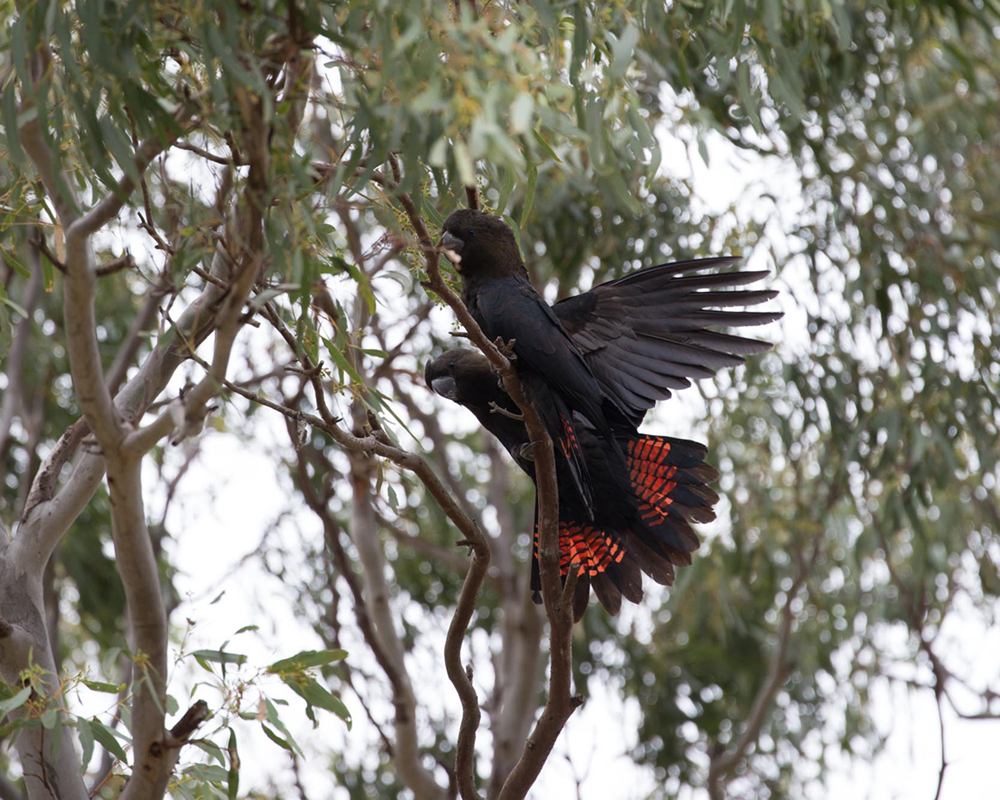 Glossy black-cockatoos. Image: Daniella Teixeira
Glossy black-cockatoos. Image: Daniella Teixeira
I’m also so thankful for the hub’s communications “dream team”; their expertise in creating comms materials, connecting me to the media and generally encouraging me helped extend the reach of my research.
In the hub, I felt part of a diverse network of researchers, working on many various projects. Such a network, I believe, is critical for keeping an open mind and doing good science. There were so many great experiences; from attending Higher Degree Research (HDR) get-togethers, to being invited to give talks on my research, and contributing to conservation efforts outside of my research (such as being involved in the Kangaroo Island Bushfire Recovery Workshop). I am grateful for my time in the hub.
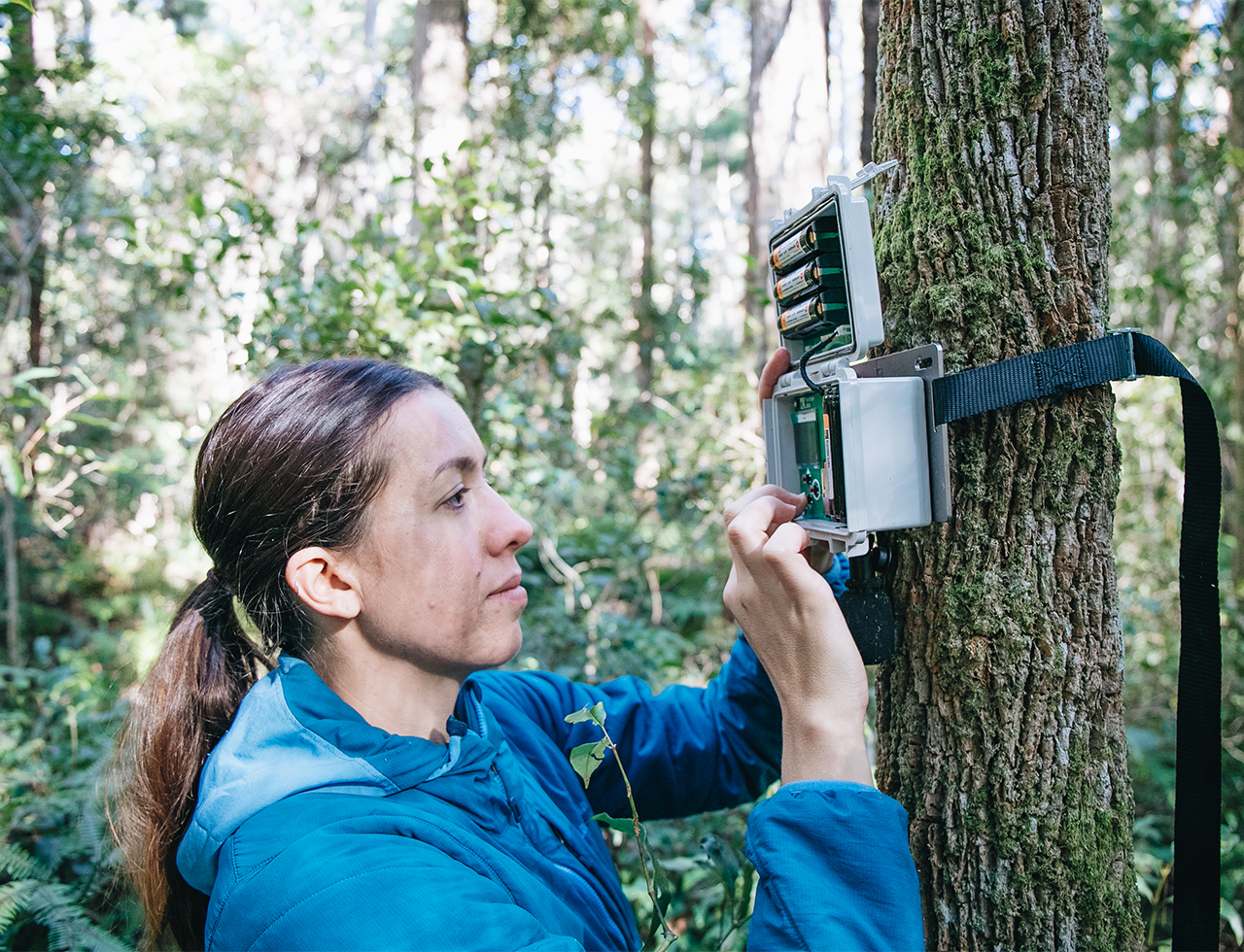 Daniella Teixeira setting up an automated acoustic recording device. Image: Nicolas Rakotopare
Daniella Teixeira setting up an automated acoustic recording device. Image: Nicolas Rakotopare
